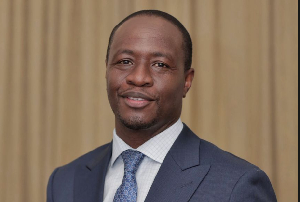Apparently, universities in Africa are tasking their students to study some unhelpful academic programmes that only serve the needs of those who believe in the gobbledygook of journalese or the rhetoric of legalese. Those courses do not promote economic or social development.
And if you do not know the meaning of ‘journalese’ or ‘legalese,’ do not worry, because they complicate and often confuse our understanding of basic things. When you are unable to make sense of any piece of writing because it is full of difficult words, faulty syntax or unusual adjectives, it is not English; it is journalese.
Legalese is the pompous language of lawyers. Do not worry about those, too. They are usually intelligible to only the people in the learned profession. They do not put food on our table. The thees and thous of Shakespeare are fun to read, especially for those of us who appreciate literary scholarship and the power of words. Beyond that, development economists and entrepreneurs such as Dr. Mo Ibrahim, a telecommunications billionaire and philanthropist, wonder why students in African universities should worry their poor heads studying Shakespeare in a modern age.
At a recent lecture at the Great Hall of University of Ghana, the Sudanese billionaire charged African leaders to avoid corruption and pursue bold economic development programmes to lift their people out of poverty. Under the patronage of the John A Kufour Foundation, this year’s Mo Ibraham leadership lectures was chaired by Sir Sam Jonah and attended by former President John Agyekum Kufour and other African statesmen. Dr. Ibraham, one of the most influential black men in Britain, expressed grave worry about our fixation with oil and gas, questioning who eats oil and gas.
It was not a rhetorical question. Agriculture is what puts food on our tables, so why are we not investing in it as an academic discipline and a profession? The entrepreneur worried that only about 2% of students in African universities study agriculture while more than one third are learning about Shakespeare and other liberal arts disciplines.
Mo Ibrahim suggests that we should make agriculture sexy, exciting and interesting, to attract more students in tertiary institutions. The academics and social development theorists who write the development story of Africa are usually quick to report that tired ‘Agriculture is the mainstay of African economies. The cliché is repeated over time. Yet in our tertiary institutions, agricultural science is not a popular subject.
That is the problem with African scholars. They have a rich repertoire of the journalese and legalese often required to describe the many challenges that assail our development efforts, but they are poor at the diagnosis of the problems. For generations, the solutions to these problems have eluded us despite the endless academic research, memorial lectures and seminars.
Some say there are too many professors and scholars parading the ivory tower of academia, professing knowledge in their fields of specialisation but failing to apply that expertise to solve the little development challenges around them. We complain that our engineers are not building cars, unable to design the most basic children’s watch, but would we be confident to fly a minute’s distance on an airplane built by a young engineer from the Kwame Nkrumah University of Science and Technology? Elsewhere, most sophisticated technological gadgets had been invented by autodidacts.
Why are our engineers not able to invent basic things like rechargeable lamps, clocks and power barges? The few who study agricultural science at the university do not want to be associated with agriculture or visit the garden next door after graduation. They prefer working at development banks and research institutions to working on a farm. In the end, we import onion and tomato while we have vast arable land to grow vegetables. We would not be importing food if we had developed our agriculture sector and given farmers the right incentives.
In our days, students who failed to gain admission to sexy courses like Pharmacy or Medicine were compensated with Agricultural Science. The same is true in the liberal arts. Students who would have liked to study Law or Business Administration settled for Linguistics or Classical History and Civilization.
The study of Agriculture was so unsexy and ‘unfashionable’ that some fickle-minded students pretended to be studying Pharmacy or Medicine to impress friends and acquaintances. The more determined and ‘unruly’ Agricultural Science students withdrew to reapply for Medicine in other institutions. They didn’t mind wasting a year or two at home to start all over again.
Frankly, what are the prospects of the agricultural science graduate in Ghana today? To be fair, Agricultural Science is not the sexiest subject in Harvard, Yale or Oxford. The Harvard Law Review is popular because it is not about mixed cropping, chicken feed or irrigation management. You probably will attract a girl with a good law degree than a cum laude in Agricultural Science. Legalese sounds sexy, even if you do not understand it.
How do we make agricultural science a sexy subject? Maybe if the requirements to study Agricultural Science at the tertiary level were as inflexible and difficult as Medicine or Pharmacy, the academic community and employers will treat the Agricultural Science graduate with some reverence and respect. That would mean expanding employment and research opportunities for graduates and defining a clear career path for them.
The other day, somebody offered a brilliant idea on how to maximize food production in Ghana. He looked around and saw a multitude of young men and women selling everything from iPhone 6 Plus to Adinkra Pastries, dangerously navigating their wares through vehicular traffic to fork out a living. He wondered why the government could not entice these agile young people with some incentives and send them to the Upper East Region to start planting new varieties of GMO crops. This will reduce economic insecurity and keep our youth from drowning in the Mediterranean.
Agriculture is unsexy at many levels. Bad roads, uncompetitive prices and harsh rural life, discourage the children of farmers from going into agriculture. The government’s agricultural budget for 2016 was slashed by GH¢40 million, indicating a 10.1% decline from last year’s expenditure, which was GH¢395.19 million. In 2016, the figure was GH¢355.14 million. Experts say this will reduce the sector’s GDP contribution by 19%.
Dr. Mo Ibrahim has started a sexy conversation about our farmers. Let’s see how our universities would weave their legalese around it to confound Ibrahim’s sexy vision.
Email:bigfrontiers@gmail.com
By Kwesi Tawiah-Benjamin
Opinions of Thursday, 26 November 2015
Columnist: Kwesi Tawiah-Benjamin















